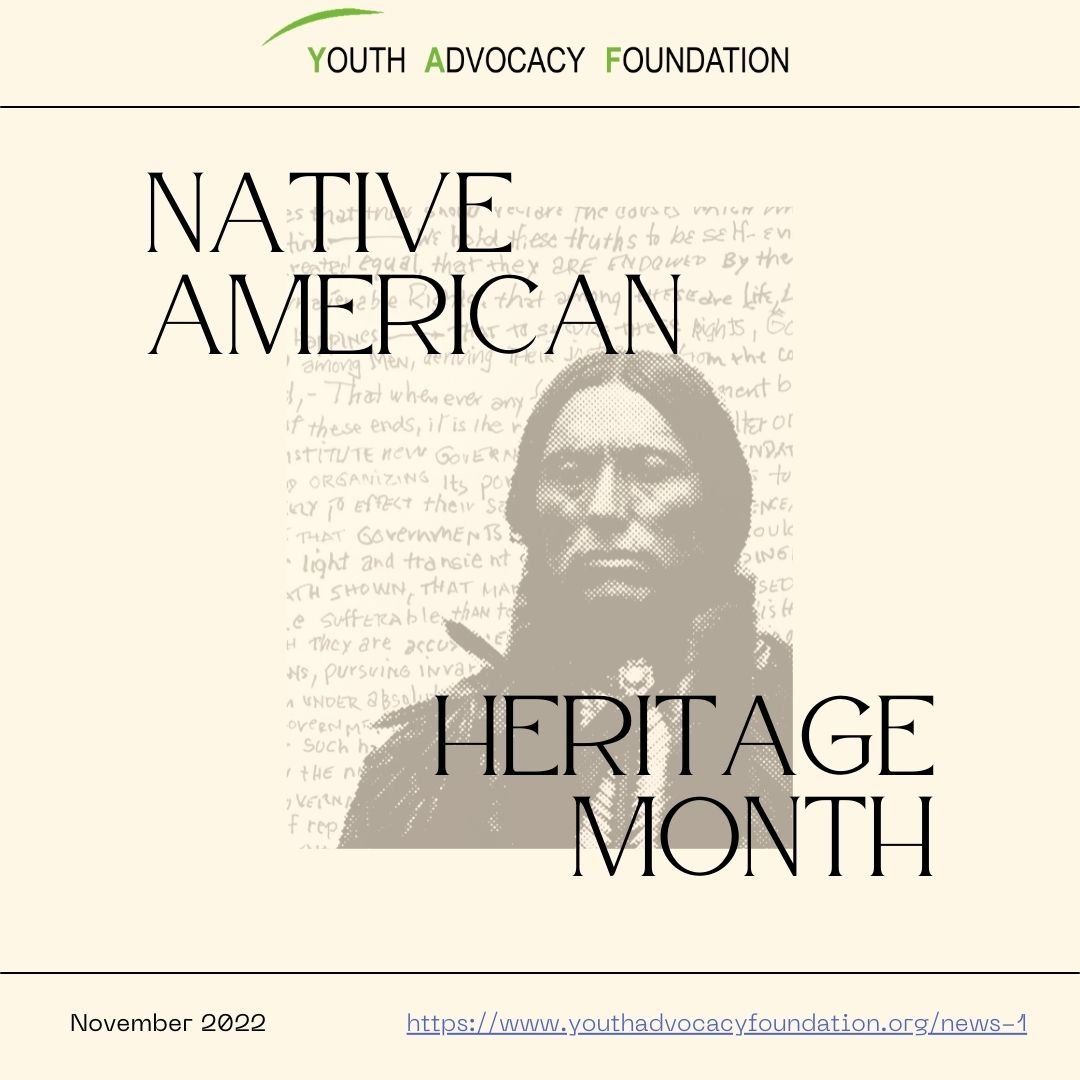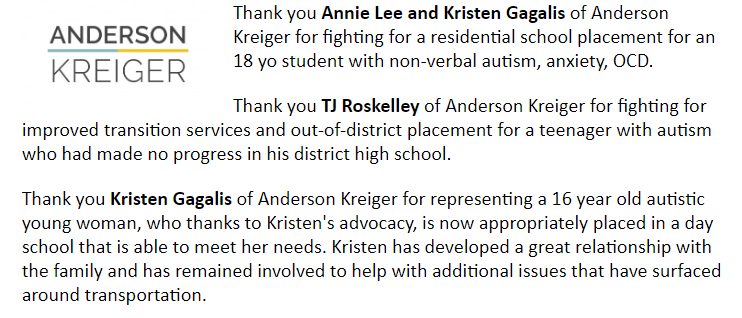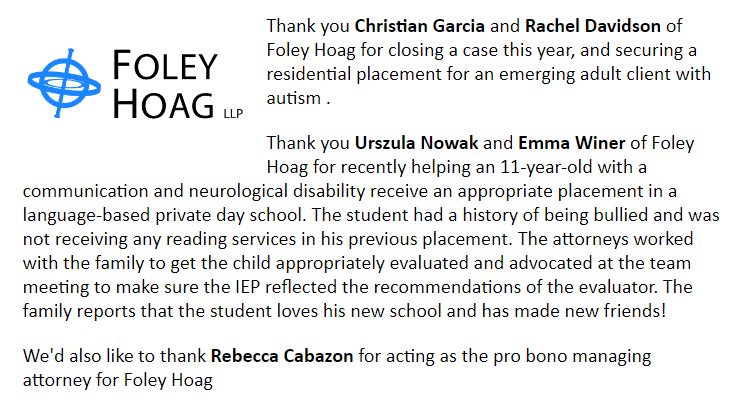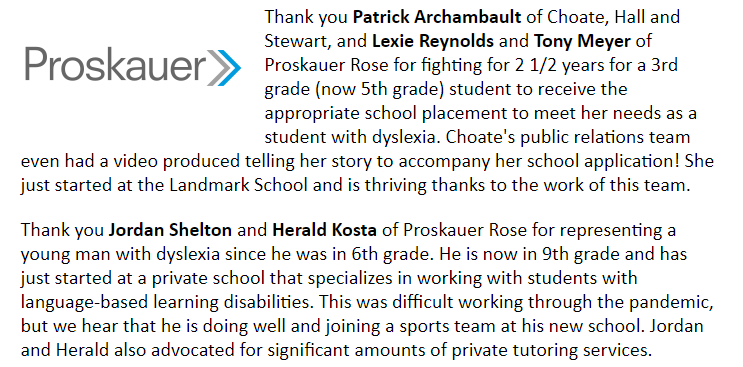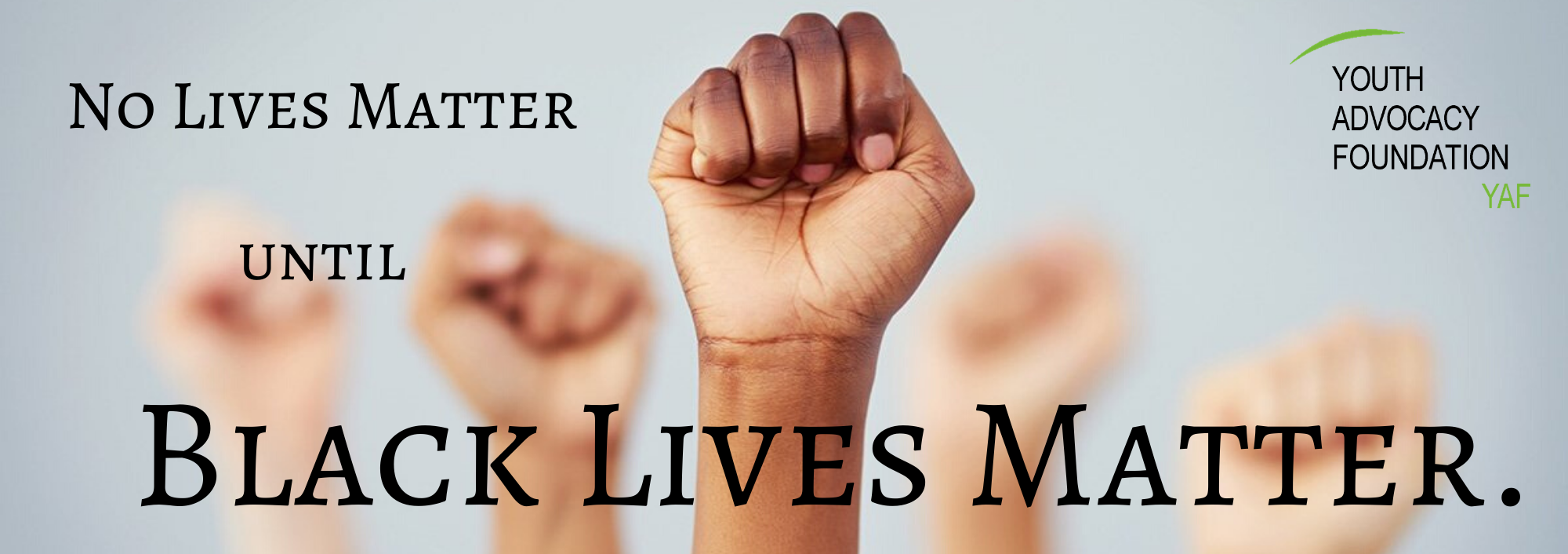
YAF News
Yesterday, December 6, 2022, YAF President and CEO, Marlies Spanjaard, testified at the Massachusetts Peace Officer Standards and Training (POST) Commission hearing to ask the Commission to require the Massachusetts Police Training Commission to collaborate with experts in education and juvenile law in the development of their School Resource Officer training program. This collaboration is legislatively mandated, but has not to our knowledge occured. Marlies cited concerns about racial and disability disparities in school arrest rates and implored the commission to ensure that if school resource officers are going to exist, that they need to be trained to understand implicit bias, child development, trauma and disability related conduct.
12/13/22 Update: Massachusetts Lawyers Weekly published an article describing the hearing that YAF CEO and President, Marlies Spanjaard spoke at last week. Marlies was one of several attorneys with expertise in juvenile justice that weighed in on the draft regulations the Massachusetts Peace Officer Standards and Training Commission had called the public hearing to discuss. The article gives a nice summary of what each agency in opposition to the regulations stated. Please click the button below to download and read the full article.
Native American Heritage Month 2022
YAF along with the Committee for Public Counsel Services (CPCS) recognizes and celebrates November as Native American Heritage Month. Please click the button below to read a note from CPCS focused on the tradition of the healing circle and its application to efforts for restorative justice. The strongest applications are criminal and youth justice matters, but there are also opportunities within the family and youth law context that the CPCS effort hopes to reach. Thanks for taking the time to read this note in honor of a wonderful community and thank you to our colleagues at CPCS for sharing a powerful resource for justice with non-Native Americans.
YAF Celebrates Pro Bono Week, October 23 - 29, 2022
With this week coming to a close, we want to again recognize and thank all of the firms and people donating their time and expertise to help our small staff of EdLaw attorneys represent even more of Massachusetts' most vulnerable youth and helps us with our mission to shut down the school-to-prison pipeline.
All week long, we've been highlighting the firms and people below, by sharing these stories of some of the incredible work they're doing or have done this year, to ensure Massachusetts' children and emerging adults are able to receive access to an equitable education.
Please read through these stories below and join us, one more time, in thanking all of these incredible people for their time and expertise volunteered!
Exciting News from YAF
A Message From Our Director -
It is my pleasure to announce some restructuring of the Youth Advocacy Foundation (YAF). As many of you know, YAF's longtime President & CEO, Josh Dohan, retired this past fall. We took this opportunity to think about the best structure for the organization going forward. Starting immediately, I as Deputy Chief Counsel of the Youth Advocacy Division will serve as the Chairperson of YAF’s Board of Directors. Marlies Spanjaard, Director of Education Advocacy for the Youth Advocacy Division, has been elevated to the YAF Board of Directors and now serves as its President & CEO. Michele Scavongelli, who has served as YAF’s Deputy Director has stepped into the role of Executive Director.
These new roles better reflect the responsibilities that Marlies and Michele have been shouldering for some time now. These changes were only possible because Marlies and Michele have done extraordinary work building the Foundation into a remarkably vibrant institution that has never been healthier financially, with greater public awareness, and which is enabling YAF’s primary initiative, the EdLaw Project to accomplish miracles in education advocacy.
On behalf of the entire YAF Board, as well as Anthony Benedetti, Chief Counsel for the Committee for Public Counsel Services (CPCS), we could not be prouder of what Marlies, Michele and the entire EdLaw team have already accomplished, and we are confident that the best is yet to come in our mission to shut down the school-to-prison pipeline forever.
Great change takes time. We are in it for the long haul and that is only possible because of the support of CPCS, hundreds of dedicated lawyers and social workers, thousands of individual donors, and a plethora of thoughtful foundations, corporations, law firms and community-based organizations. I am confident that the leadership provided by Marlies and Michele is exactly what we need to see this through. Please join me in congratulating them on their new roles.
- Duci Goncalves, Esq., YAF Chairman of the Board
Students of color, with disabilities, English language learners and students in foster care are far more likely than their peers to be disciplined, especially for minor incidents.
On Tuesday, YAF Executive Director, Marlies Spanjaard, testified in support of Massachusetts House Bill H.4138 to end the unnecessary exclusion of children from school. She joined others voicing concerns about the disparate impact of school discipline on Black and Latin-X students, students with disabilities, English language learners as well as students in foster care. These students are far more likely than their peers to be disciplined, especially for minor incidents. The laws MGL Ch. 71, Sec. 37H, MGL Ch. 71, Sec. 37H 3/4, and MGL Ch. 71, Sec 37H ½ require legislative fixes in order to function in a way that supports students AND promotes safety. To read her full testimony, click here.
We need to ban suspension for our youngest students!
Yesterday, EdLaw attorney, Elizabeth McIntyre, testified in support of Massachusetts House of Representatives bill H.3876 The Young Student Exclusion Ban Act. This bill aims to improve educational outcomes by replacing the use of exclusionary discipline in response to minor offenses by students in Pre-K through 3rd grade with effective, alternative approaches like restorative practices, mediation, and other forms of conflict resolution. To read her full testimony please click here.
YAF Executive Director speaks at Boston City Council Hearing on Reopening BPS
On Friday, July 31st, YAF’s Executive Director, Marlies Spanjaard, testified at the Boston City Council meeting on restorative justice practices and the role of police in our schools. Marlies highlighted the racial disparities that exist in Massachusetts around educational attainment and school discipline, as well as the overrepresentation of students with disabilities in the juvenile justice system.
Marlies noted that in Massachusetts, Black boys with disabilities have a suspension rate 17X their white female peers and that in the 2015 – 2016 school year, 1.7 million students nationwide attended schools that had police but no school counselors.
You can watch Marlies' testimony here: https://youtu.be/WyUtcMDyJ_s?t=13357
YAF featured in JDAI Research and Policy Series: Why Focus on Racial Trauma?
Racial trauma and racism affects a Black and African-American person's overall well-being. Black and African-American people are impacted by racial trauma due to the turbulent treatment they faced throughout American history. Black and African-American youth represent the majority demographic makeup in the juvenile justice system in the United States. Racial trauma directly impacts how black youth respond to treatment and decisions made during case planning in the juvenile justice system. The trauma informed care practices within system rehabilitation curriculums fall short of incorporating best practices for addressing racial trauma. By implementing practices that acknowledge and address the impact and effects of racial trauma, programs, agencies, and organizations serving black youth would see increased success in black youth’s response to treatment and case planning. This brief shares findings on the effects of racial trauma on Black and African-American youth as well as best practices for addressing the effects of racial trauma.
One of the projects sited in JDAI’s briefing is a project we piloted titled Ethnic-Racial Identity Development. The project piloted in Middlesex County and focuses on enhancing youths’ self-confidence and combatting stress related to racial trauma through exploring youths’ racial identities.
If you’re interested in joining their webinar to hear from their experts and learn more, you can register at: JDAI Racial Trauma Webinar or click the image below
Since the state sponsored murder of George Floyd, hundreds of thousands of people across the country have taken to the streets to protest police and state violence against the black community. Those protesting are calling for change, real change that will finally bring an end to the American apartheid that has brought unfathomable pain and suffering. Black lives matter, and until that statement is a lived reality and the color of one’s skin is no longer treated like a crime, we cannot stop fighting. We stand in solidarity with the black community and other communities of color in mourning, and in the work for real change that will put an end to state sponsored violence and systemic oppression of people of color.
Children are among those who have lost their lives at the hands of the police. Cornelius Frederick, Andre Green, Kwame Jones, Tyre King, Jayson Negron and Tamir Rice are just a few, and we must say and remember their names. For every child that has been taken from their family at the hands of the police, there are countless more who experience violence and oppression at the hands of those that are supposed to protect and care for them, whose stories never makes the headlines. Police violence does not happen in a vacuum, racial inequity and injustice is deeply embedded in American society, and change is required not just in our criminal justice system but across all levels of our community, including in schools.
Predominately black schools are much more likely to have an armed police presence and black students everywhere are much more likely to be subjected to arrests and restraints.
Since the school police were first introduced to school buildings in Flint, Michigan in 1953, the practice of putting law enforcement in schools has spread. Today, 42 percent of schools have school police, and approximately 90 percent of them regularly carry a firearm. The presence of law enforcement officers in schools creates an environment of anxiety and distrust rather than one of nurturing and support. Predominately black schools are much more likely to have an armed police presence and black students everywhere are much more likely to be subjected to arrests and restraints. In the 2015-2016 school year, black students constituted only 15 percent of the student body nationwide, but were the subject of 31 percent of law enforcement referrals.
In Massachusetts unequal treatment at the hands of school police is even worse, with black students making up only 9 percent of the student body, but 40 percent of the students who were mechanically restrained, e.g. handcuffed, in school were black. In Boston a recent report found that black students made up one third of the student body but two thirds of arrests. Black students are far too often treated as threats and not children, their voices ignored and pain dismissed as they are kicked out of their school building, physically restrained and arrested.
Racial inequity is also pervasive in our special education system. Black students are under-identified for special education, never receiving much needed educational services and abandoned to fall further and further behind their peers. When identified for special education services, black students are disproportionately segregated from their peers. In many cases they are moved to classrooms for students with emotional disabilities where they are housed rather than educated. In Massachusetts, schools meant to serve students with learning and emotional disabilities consistently have some of the highest rates of arrest.
Injustice in our schools means injustice everywhere, and we must put an end to the system that says that black children don’t matter. Here are some steps you can take to fight for equity in schools:
Educate yourself about racial inequities in our public school systems. Some resources to get you started:
Arrested Futures: The Criminalization of School Discipline in Massachusetts’ Three Largest School Districts.
Colorlines: Race, Disability and the School to Prison Pipeline
Beyond Suspension: Examining School Discipline Policies and Connections to the School-to Prison Pipeline for Students of Color with Disabilities.
Call your state and local legislators and advocate for systemic and policy changes in our schools such as:
Removal of all school resource officers (i.e. school police) from our schools.
Moratorium on all out of school suspensions, which are disproportionally imposed on black students and student of color.
Hiring of more teachers and administrators of color.
Implementation of whole school restorative justice so that school can be a space for learning and growth not punishment and control.
Greater funding for school counselors.
Universal early evaluations for dyslexia of all students so that all students receive the services they need to learn and thrive when they are young and learning basic reading skills.
Implicit bias training in schools.
Our mission at the Youth Advocacy Foundation (YAF) is to end the school-to-prison pipeline in Massachusetts by ensuring that our state's most vulnerable children receive a quality education. Today, we reaffirm our commitment to anti-racism work in every element of what we do, from examining our own biases in our organizational structure and makeup, to our work for systemic reform that will end racial injustice and advance educational equity, we will work at every level to end racial injustice and inequality.
No lives matter until black lives matter.
We Got It!! - Cummings Foundation Grant Program Winner
YAF is thrilled to announce that we received a Cummings Foundation grant! 🎉 As part of the Cummings $20 Million Grant Program, YAF was chosen out of 738 applicants to be one of 130 organizations to receive $100,000, to be paid over the next three years! This grant, in support of the EdLaw Project, will strengthen our ability to meet the educational needs of Massachusetts’ most vulnerable children.
We are grateful to the Cummings Foundation and their steadfast commitment to the non-profit community!


